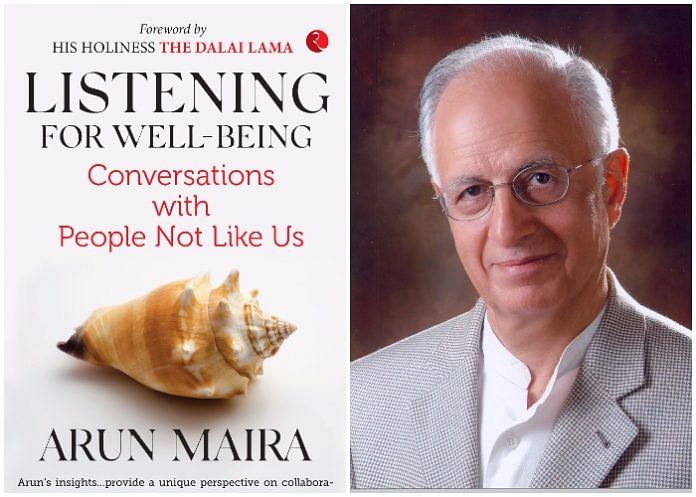The book is part leadership textbook and part musings of an old man with experience in management and government giving lessons on listening.
There is nothing extraordinary in the thoughts expressed by Arun Maira in his book, Listening for Well-Being, but his experience first as an executive in Tata Group and then as member of the now defunct Planning Commission do make good case-studies for a group dynamics course.
The message of the book is clear: we have to listen to people who think unlike us, people from different race, ethnicity, religion, region, gender and people within our social groups whose thoughts don’t align with ours. Maira stresses on the power of listening, a belief strengthened by his experience with a Jesuit priest from USA during a two-day workshop for Telco’s senior managers who had taught him to hear things before knocking them off.
Spaces contribute equally to the quality of conversation as much as interlocutors do. The design of structures in which conversations happen draws lines before an actual dialogue can start. Maira recalls the union-employer deliberations which he mediated, “All the labour union leaders sat on side of the big table at the meeting in Mumbai, and all the employers sat on the other side. This physical division made it easier to know which side they were on.” Settings of conversations matter, not only for business deliberation but also personal discussions.
How often have we encountered simple statements being flared up, mostly on social media, and subsequently lines being drawn, forces being marshaled and battles being fought? In the process, it causes immense harm to courteous debates and dialogue. “If we like some views, social media will give us more of the same. It does not waste any of its business resources and our time by offering us anything different.” Better algorithms and seamless virtual connectivity have created a stifling echo-chamber and made people into increasingly passive consumers rather than responsible citizens with inquiring minds who have doubts and questions and are competent to make their own choices.
‘Listening to others’ is the book’s gospel with abundant instances of activists not listening to people who do not think like them, the caveat being: not all parties share same level of power. Land and environmental rights activists are less powerful than industrialists with deep coffers and disproportionate influence on policy, or oppressed sections in the society are not expected to wield sway equal to other better off sections. Nevertheless, Maira is sympathetic to such sections and calls for shedding our prejudices about people.
The book is part leadership textbook and part musings of a man with experience in management and governance giving moral lessons. Some lessons become repetitive and would have looked better as an essay.



